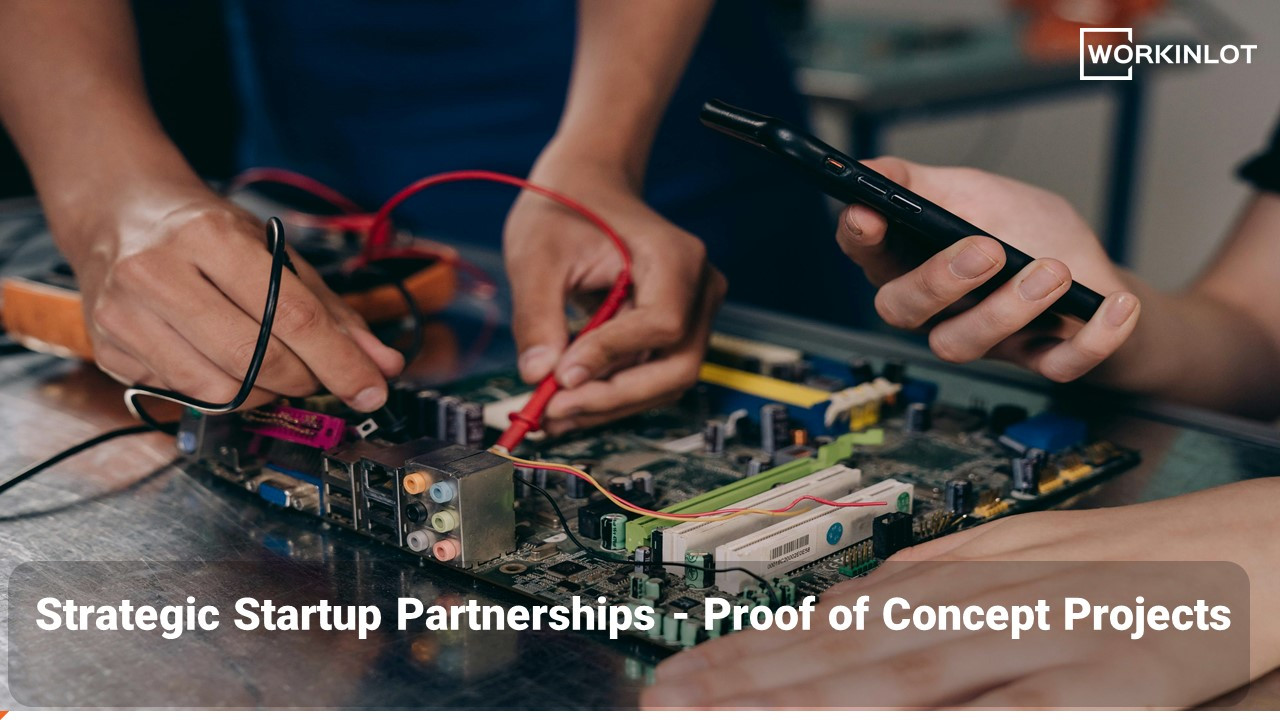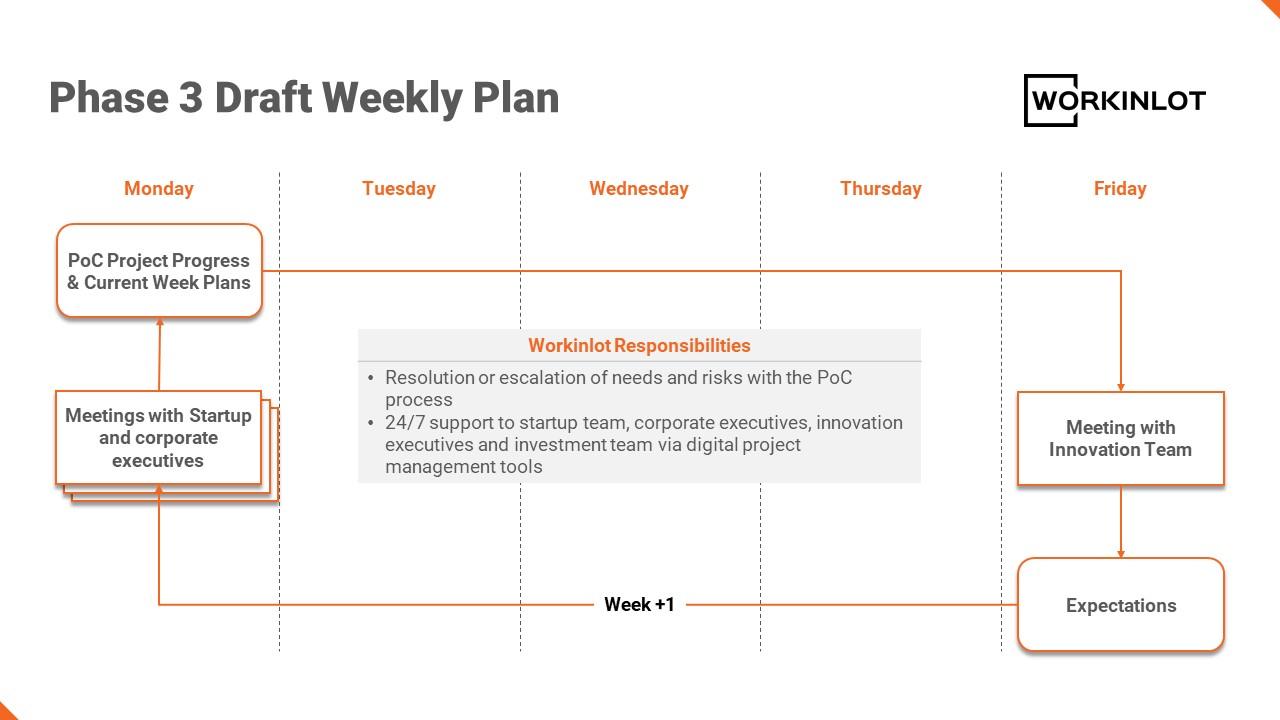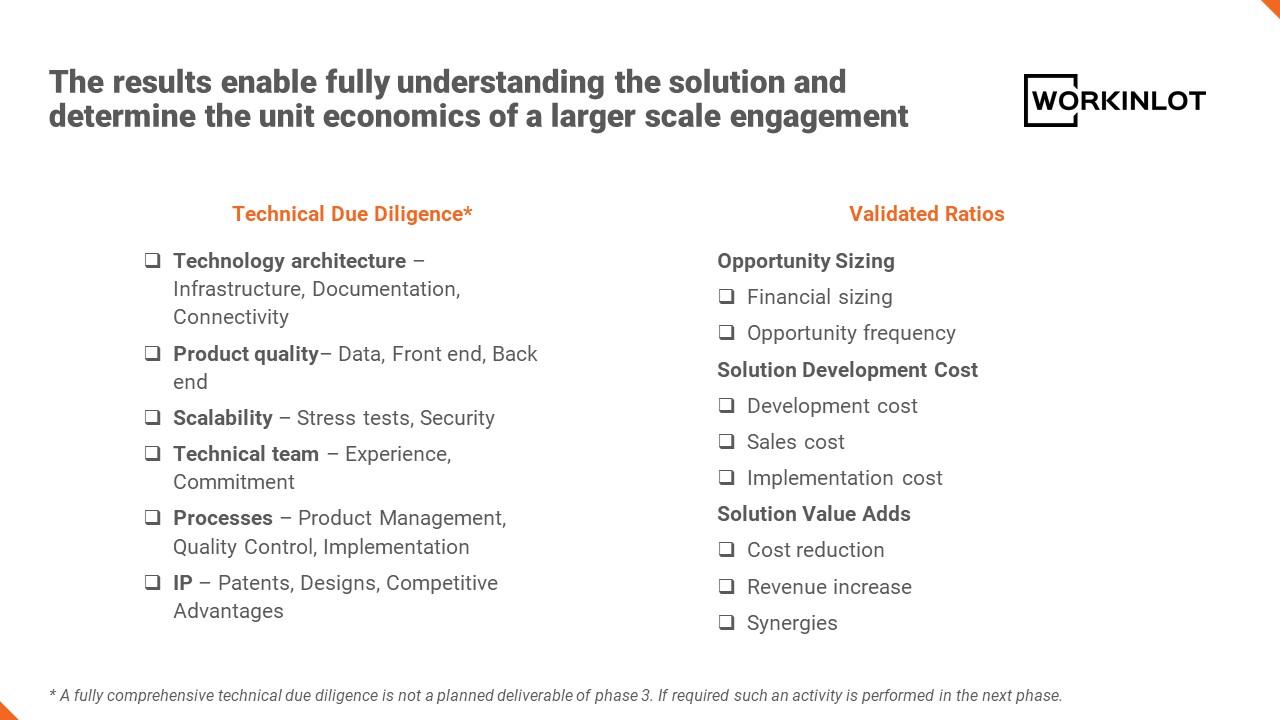
Cover photo by Mikhail Nilov
PoC (short for Proof of Concept) is a methodology created to enable startups to partner with corporations.
It originated in the IT sector to test new software solutions' technical feasibility and functionality.
Research by the German Economic Institute shows that company-startup collaborations at the prototype level through PoC projects reached 76% in 2024, making it the most prevalent form of partnership. (Innovation Through Cooperation)
Businesses can drive innovation by embracing measurable risks.
All new business models and technological solutions undergo rigorous technical and functionality testing before deployment.
In this era of rapidly accelerating innovation cycles, collaborating with startups on solution development can provide companies with agility, cost benefits, and access to specialized expertise.
We believe the cornerstone of productive collaboration is establishing and nurturing mutual trust throughout the project.
We've discovered that for PoCs to deliver value, their processes must be measurable, traceable, and reportable for both parties.
As our PoC portfolio expanded, we needed to develop a specialized tool and methodology to effectively track and manage these projects. (PoC Data and Business Intelligence)
This article will outline how to prepare for PoC projects and summarize the design, project management, and assessment stages.
Preliminary actions - Set-up Stage
If solutions developed by technology providers solve the company's requirements, they can be reviewed through demos.
When new solutions are needed, then PoC can be the preferred approach.
With innovation happening more frequently, you might be hearing about PoC projects more often now. PoC is generally used to develop new products for existing customers and to reach new customers and markets. In this increasingly risky area, companies may prefer partnerships over expensive internal resources. If the developed product creates value for other companies in the industry, both partners can gain new revenue sources, investment opportunities, and strategic positioning in the market.
To achieve this goal, let's start from the preparation phase.
(Demo vs. PoC Projects)
The initial step can be a preparation and setup phase to understand the PoC project requirements.
In this phase, there are several questions we recommend being clear about:
• Which new solutions are compatible with company goals? Identifying PoC focus areas
• Who are the internal and external stakeholders to collaborate with on PoC projects? PoC resource pool: internal business units, startups, academics, technology R&D companies
• How will you manage PoC discussions and with which experts? Process design and management
• Can you establish resources and a testing environment for PoC? Technical preparation
Based on responses to these questions, startup scanning can begin. At this stage, we've typically started by selecting between 2 and 5 startups. This number varies according to the focus area and company requirements.
Following preliminary evaluation, if the company identifies solutions worth testing next step is the PoC design stage.
PoC Design Stage
By giving the selected startups a specific PoC scenario to solve, the PoC design is initiated collaboratively.
In our experience, it's more productive for startups, as the technology and prototype developers, to initiate the scenario development.
The scenario initially presented becomes clarified through meetings with the corporate side. The joint design process and discussions may not always progress quickly. Positioning ourselves as neutral intermediaries in communications has enabled us to identify bottlenecks in projects we managed and overcome them when conditions allowed.
The design phase concludes when both parties accept the success criteria and KPIs to be measured in the PoC scenario.
 (Workinlot PoC Design Draft)
(Workinlot PoC Design Draft)
After the project scenario, development constraints, and mutual success metrics are determined, the project moves to the management phase.
PoC Management Stage
A PoC project can create learnings about the company, market, and technology even if it doesn't produce the expected outputs.
Sometimes it becomes apparent that the demand wasn't correctly defined, or that the value created by the solution won't be satisfactory. Since the project is designed with a short timeframe and low budget, it creates room for new experiments. The startup and company can make adjustments based on changing conditions or findings during the PoC process.
We recommend processes that enable regular and joint monitoring to manage iterative actions.
 (Workinlot PoC Weekly Plan Draft)
(Workinlot PoC Weekly Plan Draft)
During the project management phase, you may need to consult experts at different stages. You can typically find these experts internally within your organization, and sometimes among ecosystem entrepreneurs or academics. In some projects, we have also received assistance from employees of companies operating in different sectors.
PoC Assessment Stage
Once the PoC is completed, the initial assessment examines how well the PoC success metrics targeted during the design phase align with the metrics achieved at the end of the project.
 (Workinlot Assessment Draft)
(Workinlot Assessment Draft)
The assessment stage aims to determine how to collaborate with the startup after a successful PoC process.
• Is the solution valuable for the company today? Should joint products and services be developed?
• Can the developed solution create strategic value in the sector?
• Is it meaningful to become the startup's partner through investment and be a stakeholder in its scaling?
The decision will, of course, be consistent with the company's strategy and goals. Supporting the assessment with data facilitates sound decision-making.
Workinlot and PoC Management
Projects can be managed differently whether they succeed or fail.
• If the PoC was unsuccessful, objectively analyzing why it failed helps avoid making the same mistakes in the future and supports discovering new methodologies.
• If the PoC was successful, the newly developed solution will often hold strategic value for the company. Data-validated collaboration reduces the company's investment risk.
There are various support mechanisms for companies and startups looking to develop technology-based innovations. Among these supports, our focus area is validating the value that startups can create when working with companies.
PoC management provides companies with a way to mitigate the risk of working with startups, while offering entrepreneurs the opportunity to transition from a validated solution to market success.
Workinlot helps businesses identify innovation opportunities and navigate collaborations with technology startups.
Let's connect and collaborate to identify and validate new opportunities.